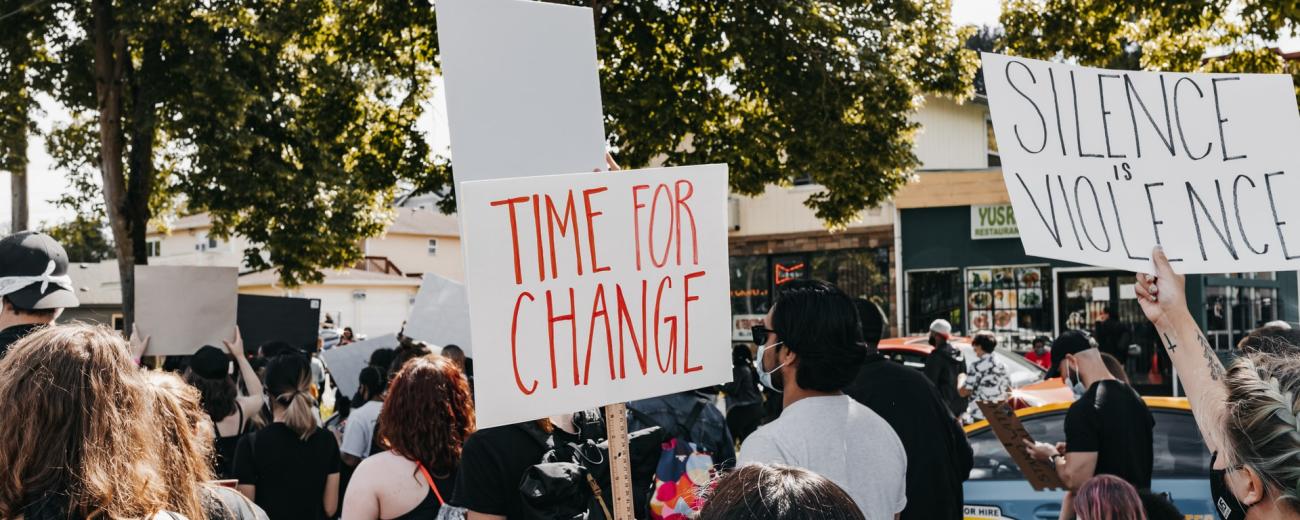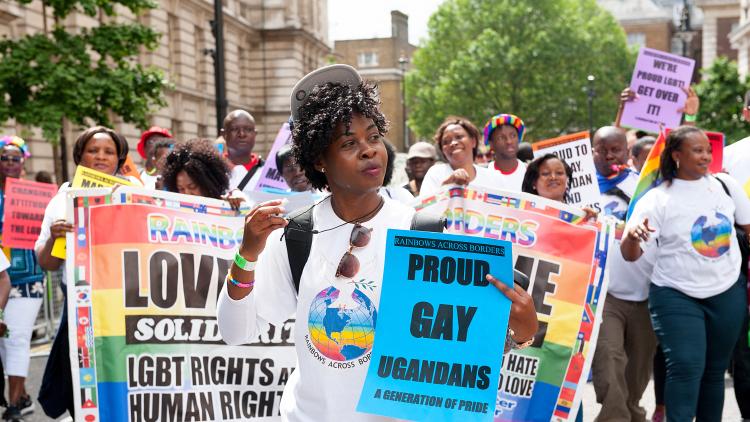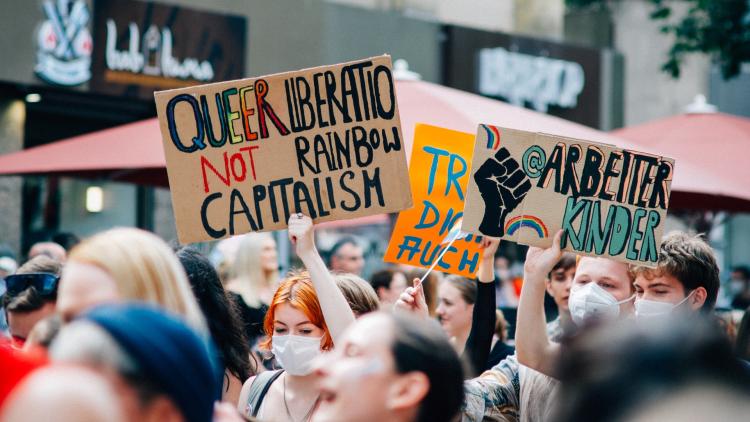MA Gender, Sexuality in Global Politics (Online)


Key information
- Duration
- 2-years (Max. 3-years)
- Start of programme
- April and October
- Attendance mode
- Online learning (part-time)
- Fees
-
MA/MSc: £12,000
PGDip/PGCert: available as exit awards. - Entry requirements
-
Upper second-class honours degree (or equivalent). Applicants need to have an academic degree in gender studies or any other degree in the humanities or social sciences. However, a demonstrable interest in gender studies without these academic qualifications will be considered by the admissions tutors .
Course overview
This online MA Gender, Sexuality in Global Politics programmes provides a comprehensive understanding of the deployment of gender and sexuality in areas related to global politics.
Informed by feminist approaches to knowledge production, International Relations, International Law, conflict resolution, peace-building, political participation, human rights, development and society the programme encompasses micro, meso and macro levels of analysis.
This unique interdisciplinary MA programme offers critical grounded knowledge of gender and sexuality in Asia, Africa and the Middle East, with a focus on the nexus between gender, sexuality and social, political and economic change and development.
This online MA degree prepares students for jobs in government agencies, non-governmental organisations, UN bodies and international organisations. Taught by leading scholars and drawing on SOAS expertise in the Global South, the programme provides students with a non-Eurocentric approach to addressing key debates in the field.
Who should apply
The MA Gender, Sexuality in Global Politics online programme is designed for recent graduates as well as professionals who are looking to acquire the necessary knowledge and skills for careers in government, education, NGOs, media and the UN.
Structure
Important notice
The information on the website reflects the intended programme structure against the given academic session. The modules are indicative options of the content students can expect and are/have been previously taught as part of these programmes.
However, this information is published a long time in advance of enrolment and module content and availability is subject to change.
All students will take a compulsory Dissertation with a value of 60 credits.
Compulsory modules
Guided options
Students will select 30 credits from the list of modules below
List of modules (subject to availability)
Teaching and learning
This programme is taught 100% online through our Virtual Learning Environment (VLE).
Virtual Learning Environment (VLE)
In the VLE you will have access to learning materials and course resources anytime so you can fit your studies around your existing commitments. For each module, students will be provided with access, through the SOAS Library, to all necessary materials from a range of appropriate sources.
A key component of the student experience will be peer to peer learning, with students enrolled in discussion forums.
Study timetable
In addition to a dedicated Associate Tutor, a Study Timetable is provided for each module and for the overall programme to help you to organise your time.
The programme is broken down into two study sessions per year (starting April and October). Each subject module lasts 16 weeks, followed by a research mini module lasting 8 weeks.
Sample study timetable
| Activity | Description |
|---|---|
| Substantive module | 16 weeks |
| Reading weeks | 2 weeks |
| Research mini module | 8 weeks |
| Reading weeks | 2 weeks |
Assessment
Each module is assessed by five written online assessments (‘etivities’*) comprising of 30%, the remaining 70% is formed of a 5,000 word essay.The etivities provide formative and summative feedback to students as a means of monitoring their progress and encouraging areas in which they can improve.
* An 'e-tivity' is a framework for online, active and interactive learning following a format that states clearly to the students its 'Purpose'; the 'Task' at hand; the contribution or 'Response' type; and the 'Outcome' (Salmon, G. (2002) E-tivities: The Key to Active Online Learning, New York and London: Routledge Falmer.)
Research training and dissertation
Research training is a key feature of this programme, the dissertation module is presented in four development parts, which will follow each of your module sessions. Research modules one and three are formative modules only, and are not assessed.
The dissertation is assessed by the submission of a written dissertation of no more than 15,000 words, excluding the bibliography and appendices, which will account for 85% of the mark awarded for the module (research module four). The remaining 15% of the module mark will be based on the mark obtained for a 1,500 word research proposal (research module two).
The research proposal is compulsory for students going on to do a PGDip or MA. MA students must submit a dissertation at the end of research module four.
Fees and funding
| MA/MSc | PGDip* | PGCert* |
|---|---|---|
| £12,000 | See below | See below |
*PGDip and PGCert are available as exit awards. Interested students should get in touch directly with the course team devsonlineprogs@soas.ac.uk
See online and distance learning fees for further information.
Pay as you learn
Our online programmes can be paid in full at the time of enrolment or on a pay as you learn basis. Pay as you learn means you pay for modules prior to enrolment (£3,000 each).
Postgraduate loans
If you have been a resident in England for three years you may be eligible. For more information, please see fees and finance.
Application
To make an application, or to find out more about our admissions procedure, please visit cefims.ac.uk and how to apply (ODL).
Employment
Graduates leave SOAS with an enhanced knowledge of gender and equality across cultures, as well as a wide range of transferable skills. Gender Studies is highly regarded by employers across many sectors, as increasingly, policy makers, businesses and governing structures understand the need to engage with gender and sexuality.
Recent Gender Studies graduates have been hired by:
- ActionAid
- Amnesty International
- Association for Women’s Rights in Development
- Commission for Gender Equality
- Euromet Feminist Initiative
- International Organization for Migration
- International Rescue Committee
- Raising Films
- The Children’s Society
- The Guardian
Find out about our Careers Service.




